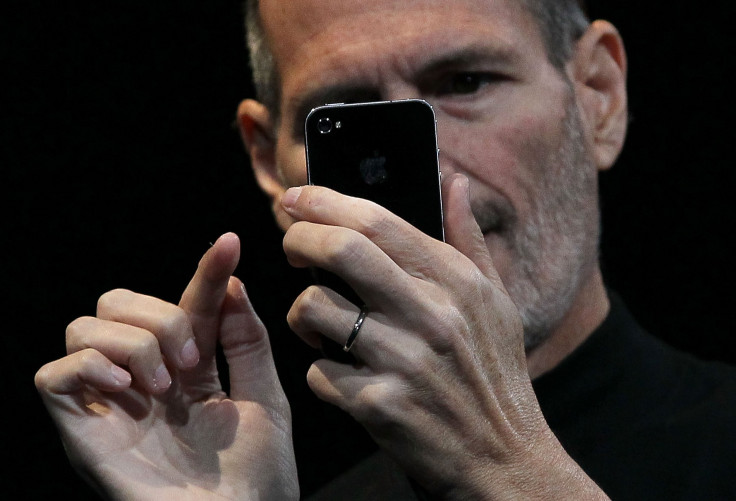What's At Stake Today For Apple: Can It Still Create The New New Thing?

Apple Inc.’s (NASDAQ:AAPL) long-awaited mystery event is this morning at 10 a.m. PDT, and the rhetoric is loaded.
On the day that we expect the company to unveil two new iPhones with larger screen sizes, a smartwatch, and a mobile payments system, press and Apple fans alike will be gathered at the Flint Center for the Performing Arts in Cupertino, California, the same location where Steve Jobs took the wrapping off the original Macintosh personal computer some 30 years ago. The subtext approaches “everything will be different after this.” Indeed, Jackdaw Research analyst Jan Dawson told us that we can expect to see the "next several years of Apple's growth and success laid out today."
Keeping in mind that absolutely nothing is official until Tim Cook says it from the stage, here’s what the smart money is calling for this morning: an iPhone with a 4.7-inch screen, a second model of iPhone with a 5.5-inch screen, a watch that pairs with your phone to do cool things from your wrist, and an as-yet-undefined payment system that aims to replace your wallet with your smartphone. If Apple should actually deliver on all of these in one morning, it’s sure to be the blockbuster tech news event of the year.
Changing the subject
Despite the starlight and impact Apple no doubt wants to evoke today, the event is held on the heels of a high-profile security incident in which hackers stole nude photos from various celebrities’ private iCloud storage. Apple issued a statement maintaining that its security was unaffected -- after all, hackers gained access to the photos by guessing correct passwords -- so look for Apple to take the offensive on establishing its technology as secure. If the company is about to ask people to trust its infrastructure to facilitate everyday purchases (and for collecting personal, potentially sensitive data for those using its Healthbook app), Apple needs to come out as a security bulldog.
A phablet iPhone might not strike you as standard Apple fare, "Steve Jobs never would have done that," etc. But Pacific Crest analyst Andy Hargreaves told us that "Jobs' purity of vision was always flexible to the reality of the market." The simple fact remains that there are enough people willing to buy phablets that Apple knows it can make one worth owning for people who want to plug it into Apple's ecosystem of hardware and services.
The last couple iPhone keynotes have only seen incremental improvements in hardware, so consumers (and reporters alike) are especially eager to see what the company can do with the table so well-set for a “bigger iPhone.” If the demonstrated products don’t check enough boxes, assorted tech zealots and talking heads will rehash the beyond-boring talking point that “Tim Cook isn’t Steve Jobs,” therefore “the company is doomed,” and so on. This isn’t true. Apple isn’t the type of company to be defined by one product’s purported success or failure. (Raise your hand if you remember Apple’s home gaming console, called Pippin. Exactly.)
There’s still a lot more to learn about how Apple plans to make payments happen, but Apple payments won’t live or die because people don’t want to share their information with Apple. Consider Facebook, a product used nonstop even though it makes all of its money based on the information people share with it.
Defining a new category
Apple’s payments will live or die based on usability. Credit cards don’t require a fraction of a thought to use correctly, so this is what Apple’s competing with -- a payment mechanism that’s easy to use and that you always have with you. Given that the near-field communication, or NFC, chip to facilitate payments is embedded in the phone (which people always have with them), Apple only needs to see to it that it’s effortless to use.
Apple’s purported iWatch also has a major challenge surrounding battery life. After seeing a number of smartwatches with entirely unremarkable battery lives, we feel that this will be the sink-or-swim consideration to establish the iWatch as a product worth owning. Can it make it a day, a day and a half per charge? If it’s less than that, then there will be trouble.
There’s no reason to think that Apple won’t nail the basics here -- an iWatch will look great and be easy to use, but it will have to add value to someone’s life for them to make a habit out of using it.
Hargreaves told us that the iWatch needs to be "bigger and better than a device that simply talks to your phone." If it's a rehash of other connected-wrist devices (Pebble, Android Wear) that rely on your smartphone's data connection to display notifications or other useful info, it will register as a flop. Dawson told us that "people don't care that much about notifications" and referenced the 10 percent of Americans who own a fitness tracking device, which the iWatch will purportedly double as. Releasing a smartwatch that's useful regardless of if it's connected to a phone is one way that Apple might turn heads.
Apple has no doubt spent some time figuring out how it should steer the ship without Steve Jobs. It’s done well at this since his death in 2011, and it's time to call for the end of the "post-Steve Jobs era." This event is a prime opportunity to show consumers that everything will be different after this.
© Copyright IBTimes 2024. All rights reserved.






















